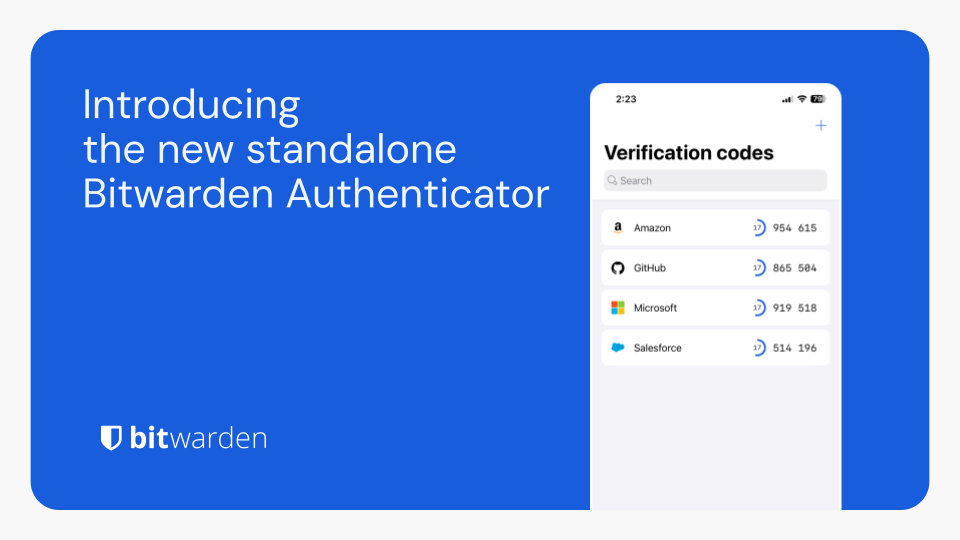Bitwarden Authenticator is a standalone app that is available for everyone, even non-Bitwarden customers.
In its current release, Bitwarden Authenticator generates time-based one-time passwords (TOTP) for users who want to add an extra layer of 2FA security to their logins.
There is a comprehensive roadmap planned with additional functionality.
Available for iOS and Android



Correct me if I am wrong, but the Bitwarden client itself already does this. I store several of my TOTP’s in my self hosted Vaultwarden/Bitwarden install.
And where would you store your Bitwarden login TOTP if you used their service instead of self hosting?
And what happens if your Bitwarden account gets compromised? Now you’ve lost both factors at the same time.
No, I’ll keep my 2FA separate from my password manager, thank you very much.
Good luck getting your vault compromised.
Unless you have a weak password or the vault isn’t encrypted (which it is, AES256 iirc and you might be able to change that on a self hosted version), I don’t see that happening.
Most password manager hacks don’t attack the encryption or password themselves (my password is very long), they find/create a side channel. For example:
Every secure system can be defeated, but it’s a lot less likely that two secure systems will be defeated at the same time. So I keep my passwords and second factors separate. It’s unlikely that either will be compromised, and incredibly unlikely that both will be compromised at the same time.
You’re right, it does. This is a head-scratcher.
I guess they already had the TOTP code written, so creating a standalone app was trivial, but what’s the point?
Security-wise it’s not a good idea to keep passwords and 2FA codes in the same client as it then becomes a single point of failure. A standalone authenticator app resolves that as long as it’s not unlocked with the same master password. A standalone app also opens a venue for non-BW customers to get on their platform.
Would it count if the application is the same but all the TOTP is handled by a different database with a different passphrase?
Depends on how they got broken
It’s not a good idea to keep both on the same device, but i wouldn’t use it at all if it was a struggle
TOTP in the Bitwarden Vault is a paid feature. The standalone app is free, and doesn’t even require a Bitwarden account.
This allows free tier users a way to use TOTP without upgrading, and without needing to trust Google Authenticator or something else.
TOTP code is like 5 lines. The hardest part is writing the seed to disk.
thd totp in the default application is paid and that isn’t
Because you can enable totp on your Bitwarden account and it would be dumb to store the password and totp for your biwarden vault in your vault?
Also it can act as a stepping stone for non Bitwarden customers, before getting their own vault.